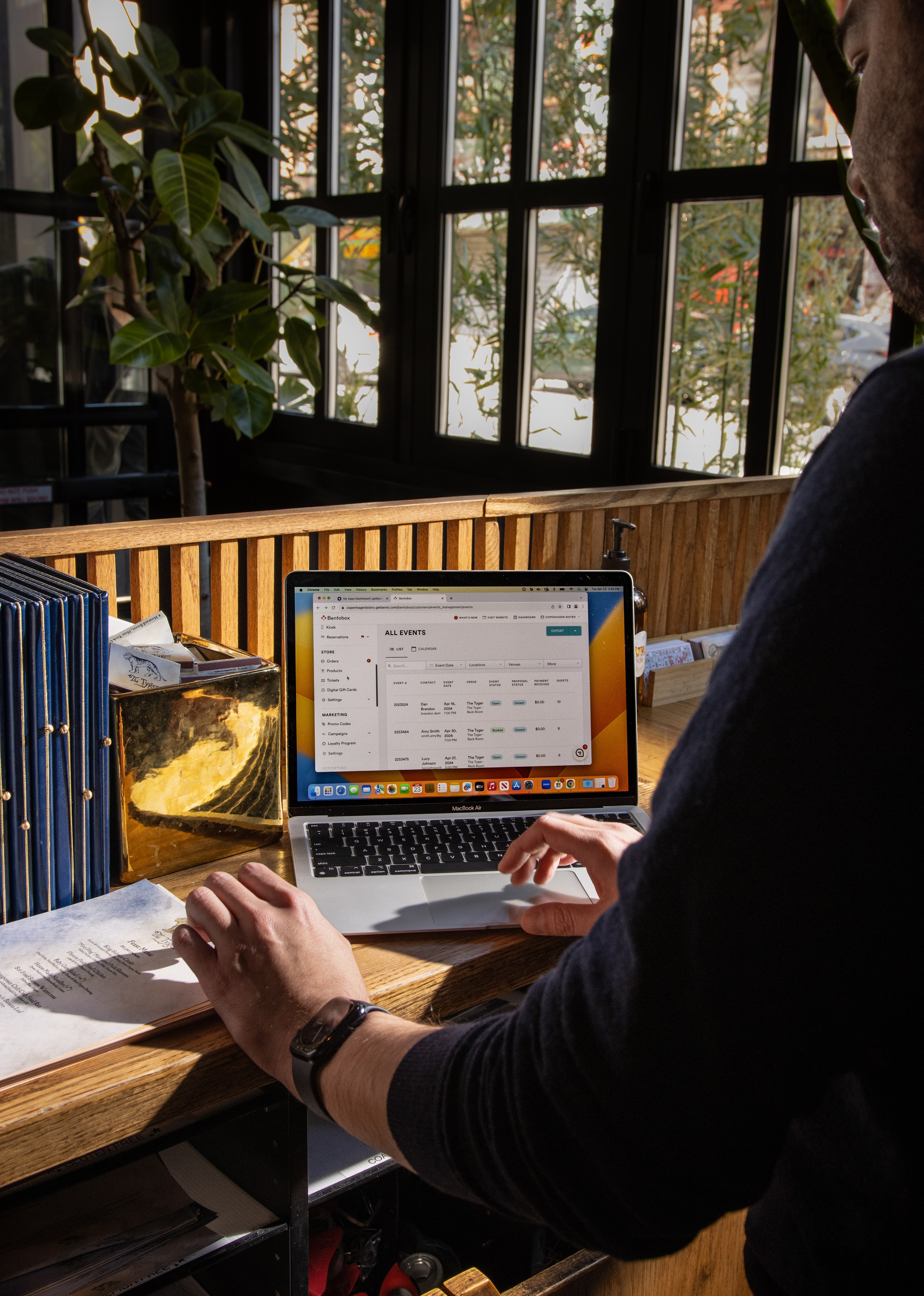Commerce
How to Create and Market a Successful Ticketed Event
Ways to market and sell tickets to dinners, tastings, cooking classes, and more through your restaurant website.
Are you maximizing your restaurant space to generate the most profits possible? Ticketed events are a great way to diversify your revenue streams. Wine and beer dinners, baking classes, and flower arranging workshops are some of the most popular types of events that restaurants are hosting. Here’s your three-step guide to developing an event idea, putting together a marketing strategy, and selling out your tickets.
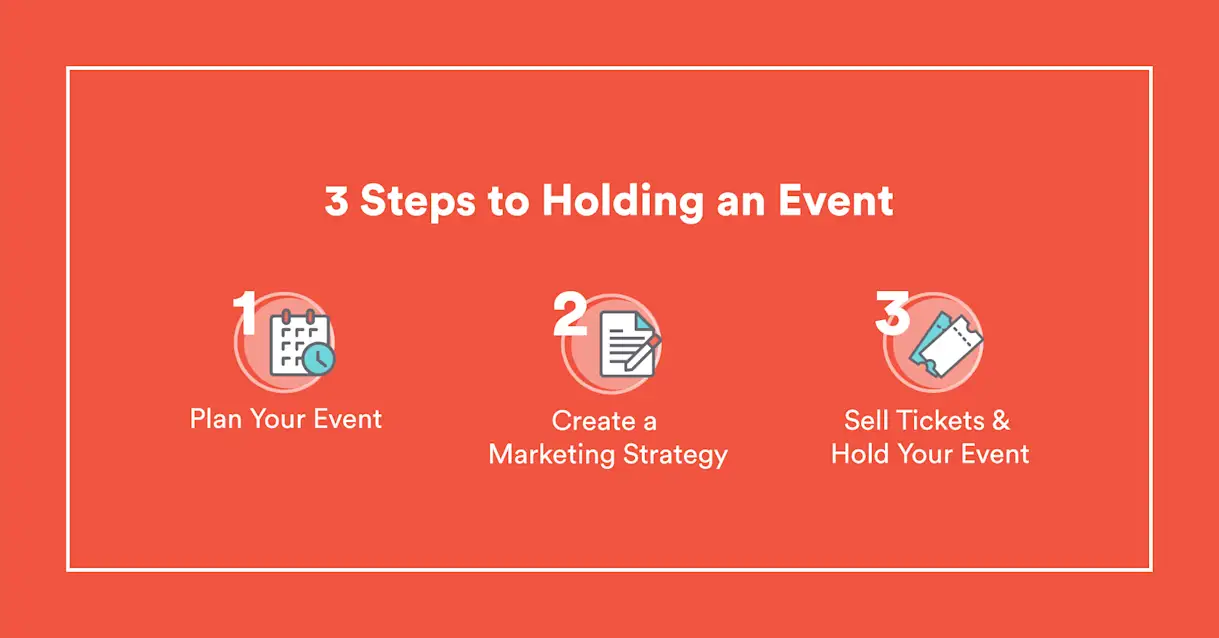
Step 1: Plan Your Event
What about your space is unique? Do you have a masterful bartender who is interested in teaching classes on how to create cocktails? Would your guests be interested in learning how to make desserts from your head baker? Thinking through questions like these can inform what types of ticketed events you might offer to your guests.
Read more: 38 Restaurant Event Ideas to Drive Revenue
Pick When and Where
Find an area in your restaurant that matches the capacity for the number of tickets you want to sell. It’s also important to plan the event around a time that works for your team. Is that before service, during service, or possibly a day that you are closed? Ensure it isn’t disruptive. However, keep in mind that if you do host an event during service, it could create intrigue for guests who are dining with you. Do what works best for your staff.
Manage Event Details
Once you’ve decided what type of ticketed event you’d like to hold, it’s time to consider how you can best market it so that your guests find out about it and purchase tickets. Start with your restaurant website and create an event with an option to sell tickets. By offering the ability to purchase a ticket directly from your website, you can control the entire process. This includes managing digital announcements, avoiding paying third-party transaction fees, and centralizing pertinent event information all in one place.
Step 2: Create a Marketing Strategy
Marketing doesn’t need to be complicated. Between social media promotion, email blasts, and influencer collaborations, there are a lot of channels to choose from. Below are the top eight most effective ways you can spread the word about your ticketed events. If you’re looking to put together a longer-term plan and need support, grab our free marketing plan template.
Read more: 10 Restaurant Marketing Tactics to Try in 2024
Create an Event on Your Website
After you’ve planned your event, it’s time to build out an event page on your website. Decide on an event title, write a detailed description about what will be offered, and make sure to put the time and place. Below is a great example from Tuscan Kitchen in Salem, NH, an Italian restaurant that offers nearly 30 classes per month.
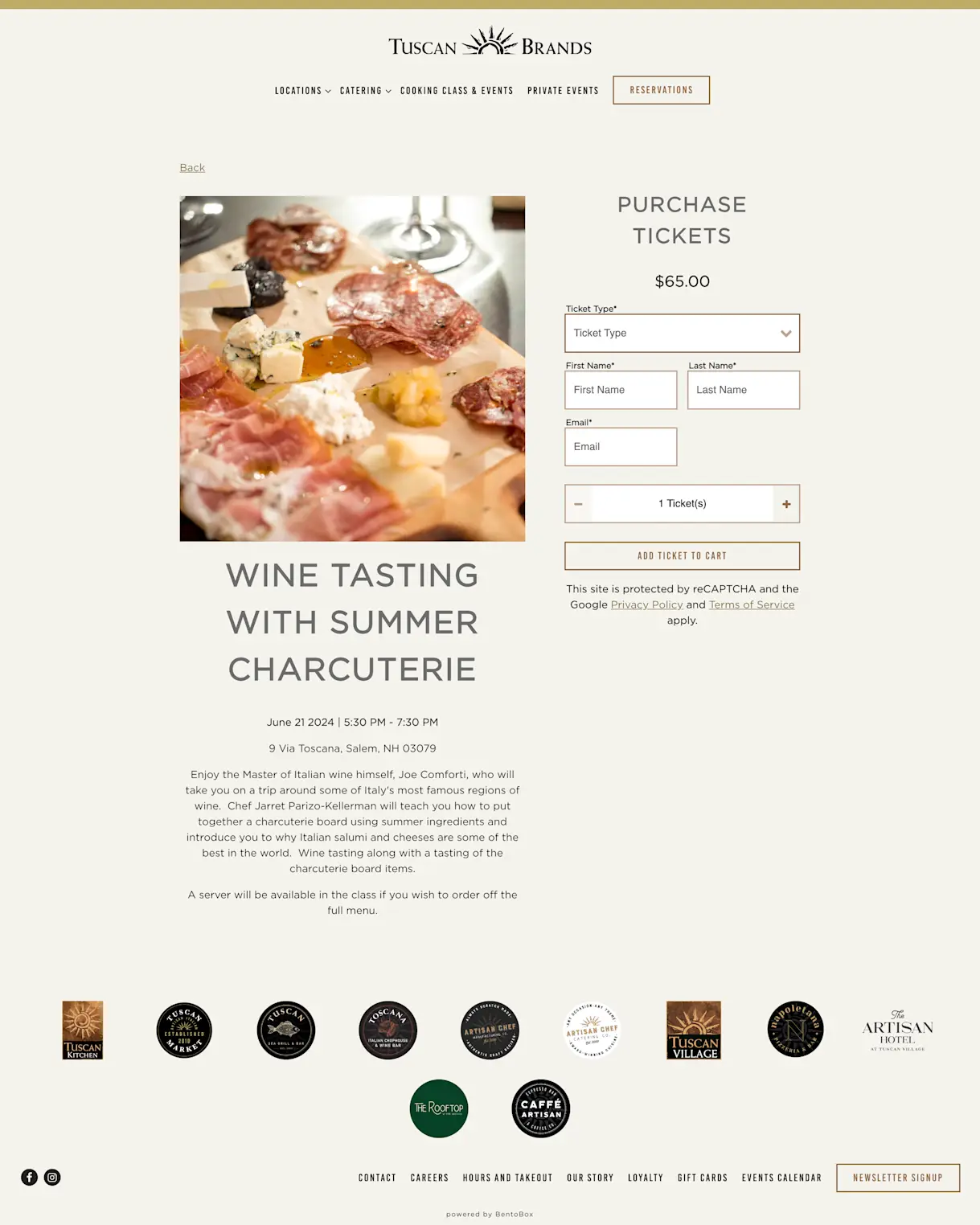
List all of the upcoming events your restaurant plans to host on a main landing page so that it’s easy for your website visitors to find. Billie’s Grocery in Kansas City, MO displays their event schedule in a grid on their Classes + Events page using beautiful photography. Each image links off to the ticketing page for that individual event and drives to a simple form to purchase tickets.
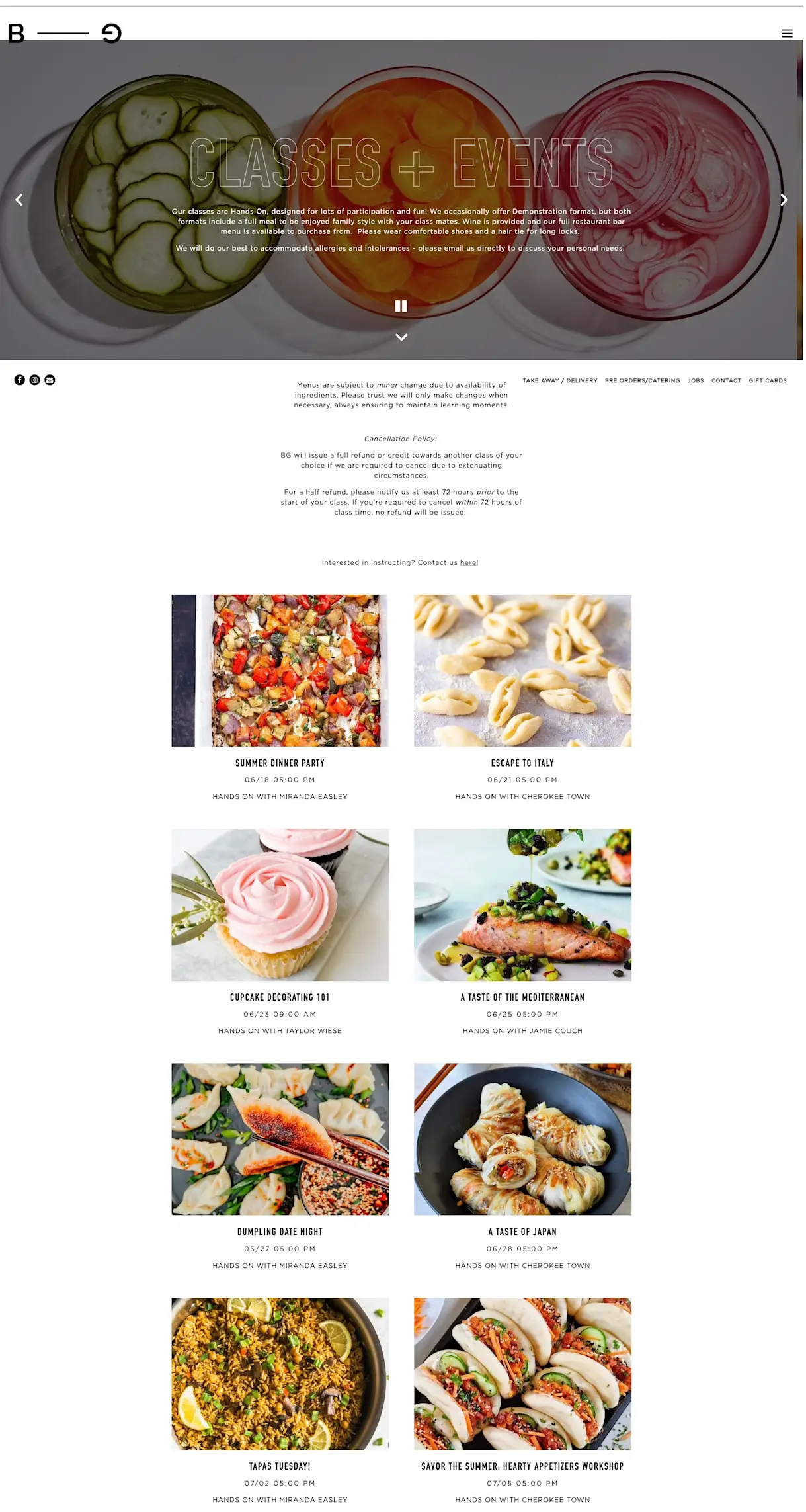
When it comes to selling tickets, it’s easy to create and manage an event in the BentoBox Marketing & Commerce Platform without the use of a third-party. You keep the revenue, ensure a secure and smooth checkout process, and streamline the event details by having all of the pertinent information in one place — including key guest details.
You can easily control the event details like purchase limits, blackout dates, and promo codes to create urgency. Plus, you can mark when an event has sold-out on your website. Find out how it works.
Set Up Overlay Alerts
There are many ways to bring attention to an event through your restaurant’s website. One way is to create an overlay alert with a call-to-action to view the event page and purchase tickets. When guests visit your site, it’ll be the first thing they see when landing on your homepage.
This is easily created within the BentoBox Marketing & Commerce Platform. Below is a great example of how Francie in Brooklyn, NY uses a powerful overlay alert to drive interest from website visitors in their ticketed Martini Mondays events.
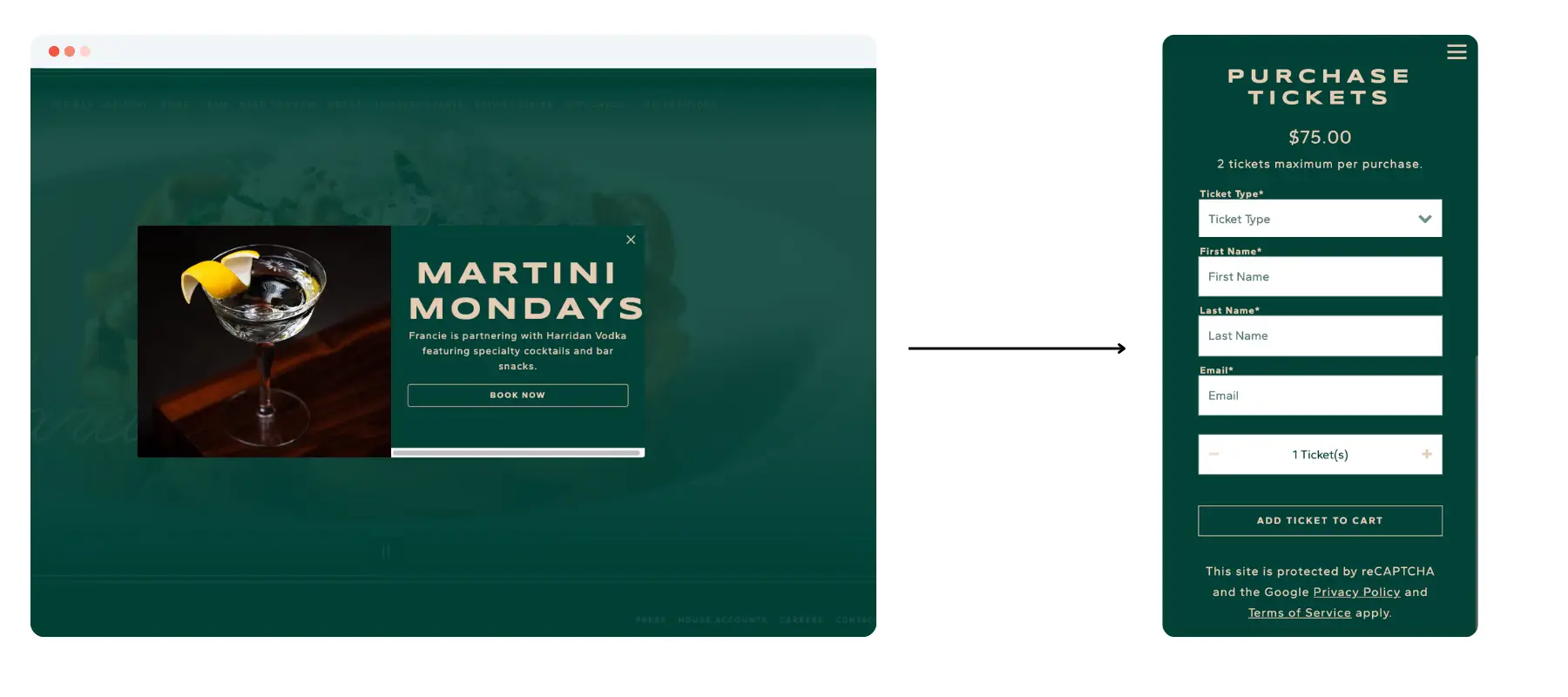
Francie uses a website overlay alert to drive to a ticketed events page
Use Printed Collateral
While your website and social media platforms are great tools for getting the message out, don’t forget about the guests who are coming in and out of your brick & mortar. Create a flyer or small print-outs about your ticketed event. For example, you drop it off when you deliver the bill to your guests. Keep a few by the host stand or the registers.
Another powerful way to reach beyond the brick & mortar is by placing ticketed event details in to-go orders, especially if your operation processes a lot of online orders for delivery or pick-up.
Post on Social Media
Social media platforms are one of the most powerful tools for spreading the message about your upcoming classes or events. The main channels to focus on are Facebook, Instagram, X (formerly known as Twitter), and TikTok.
Read more: Social Media Marketing for Restaurants: 10 Keys to Success
Il Fiorista in New York, New York regularly posts on its Instagram account to promote the spot’s flower arranging workshops. The example below features a stunning image to capture attention and uses the caption to share important details like date and time. There’s a short yet informative description followed by a strong call-to-action to “Click the link in bio to purchase your tickets.”
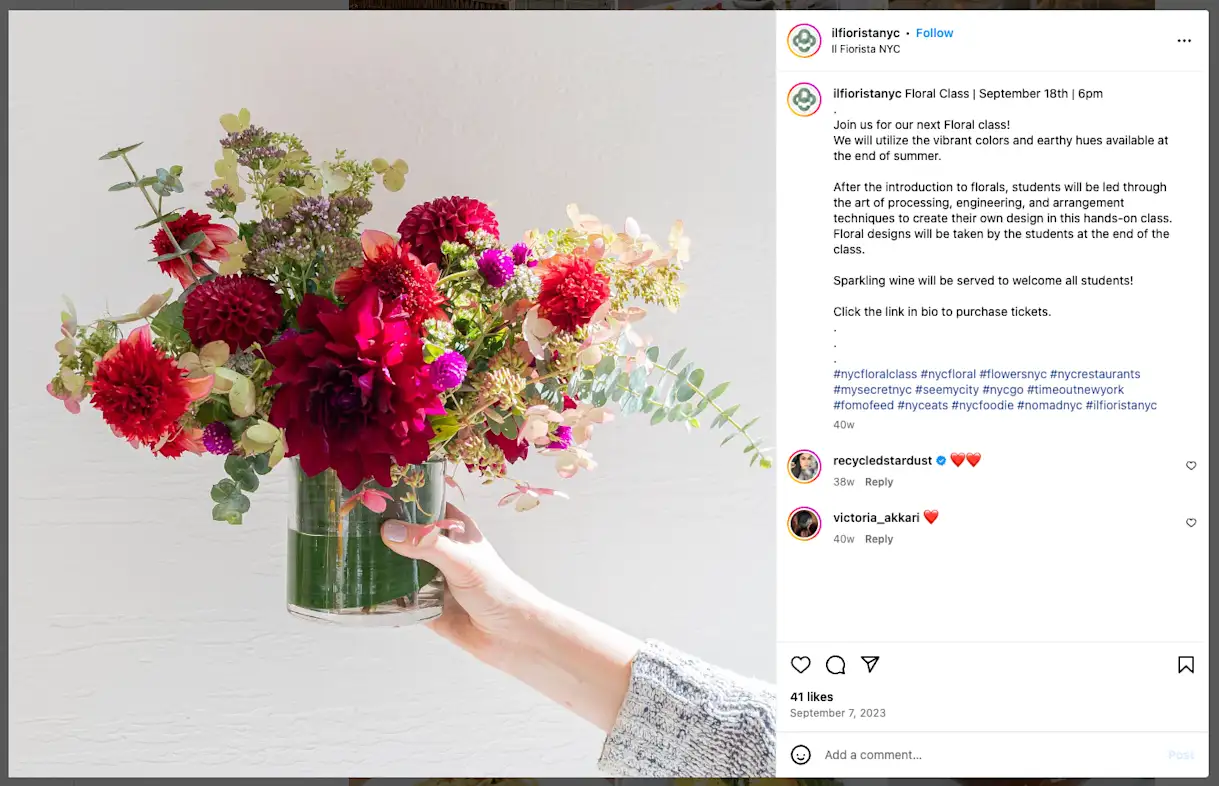
Billie’s Grocery in Kansas City, MO takes a slightly different (but still successful) approach to promoting their upcoming events on Instagram. Here, the restaurant makes a general announcement about the line-up of cooking classes for an entire month instead of focusing on a specific event. Both methods are good options. One note: if you follow the lead of Billie’s Grocery, make sure you have at least a few events to promote for the post to work well.
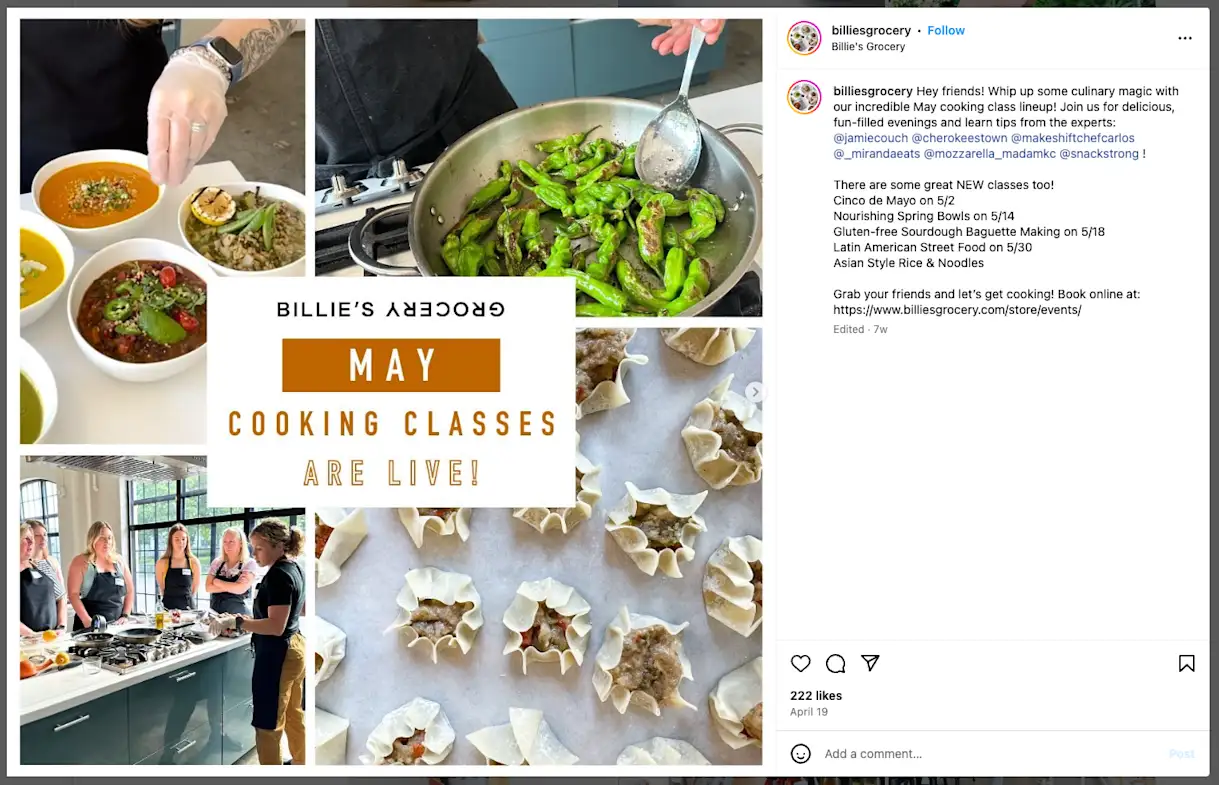
If you have the budget, consider putting some money behind paid social media promotion — either set up an ad or boost an existing post. New to the world of paid digital marketing? Check out this beginner’s guide to Facebook ads for restaurants.
For more social media tips, explore the resources below:
Send an Email Blast
Email marketing is a high ROI channel. In fact, 60% of consumers say they’ve purchased as a result of a marketing email they received. That’s great news for restaurants looking to sell event tickets.
Read more: A Beginner's Guide to Restaurant Email Marketing
In the example below, Gage & Tollner in Brooklyn, NY promoted their wine dinner series to their email marketing list. The email is simple with minimal photos and text, which allow the CTA buttons to stand out (“Purchase Tickets”).
Read more: 27 Subject Line Ideas for Your Restaurant Emails
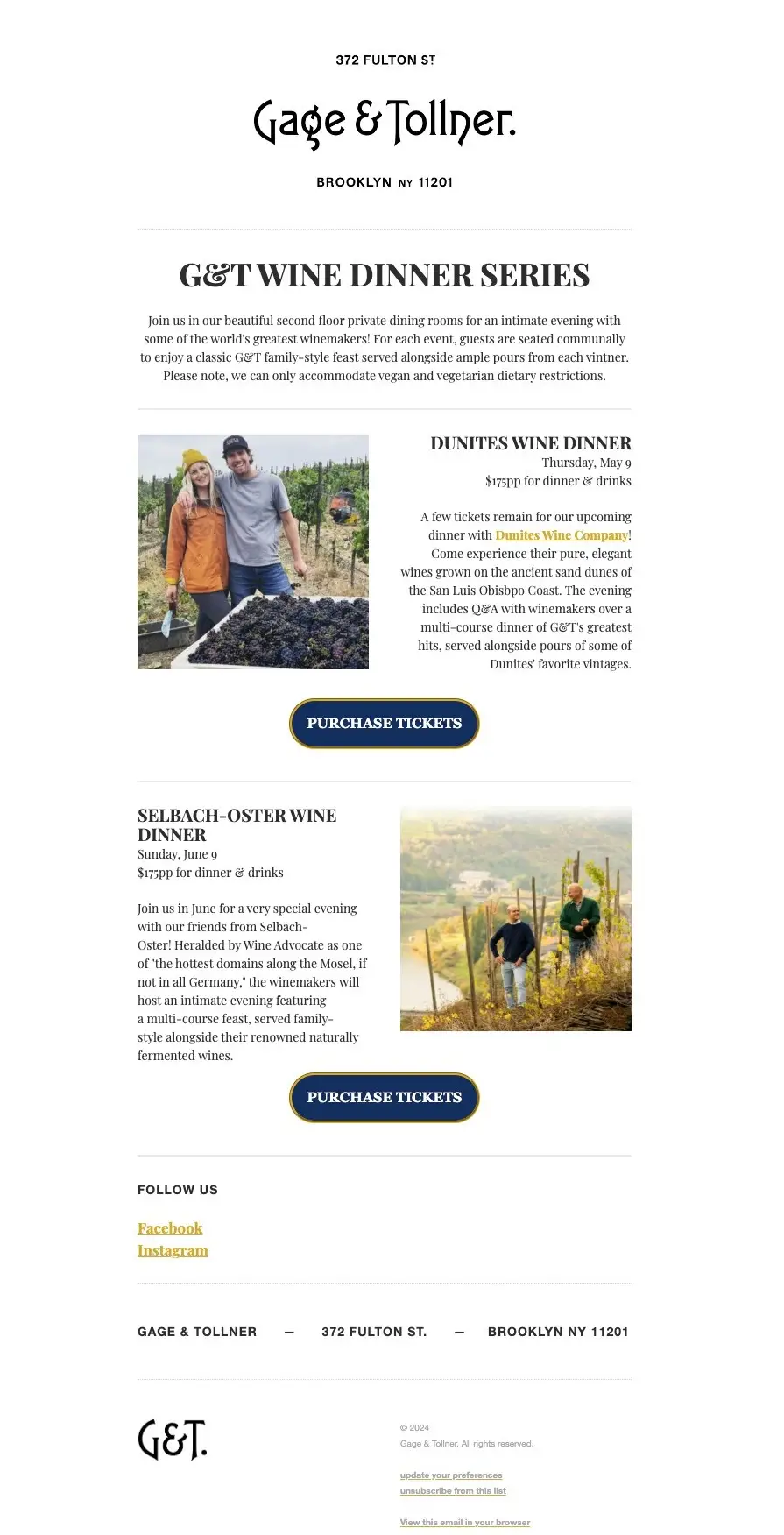
Partner with an Influencer
Influencer marketing is a $21.1 billion industry, and it’s a main way that diners hear about restaurant happenings. Not only is working with influencers a great way to broaden your reach and connect with a new audience, but it has a ripple effect of helping to grow your own social media presence.
Citrus & Salt in Boston, MA collaborated with a local food and lifestyle influencer to give away a pair of tickets to its cocktail class. The partnership generated over 2,600 likes, 400+ comments, and 83,500 impressions.
Read more: A Restaurant’s Guide to Influencer Marketing
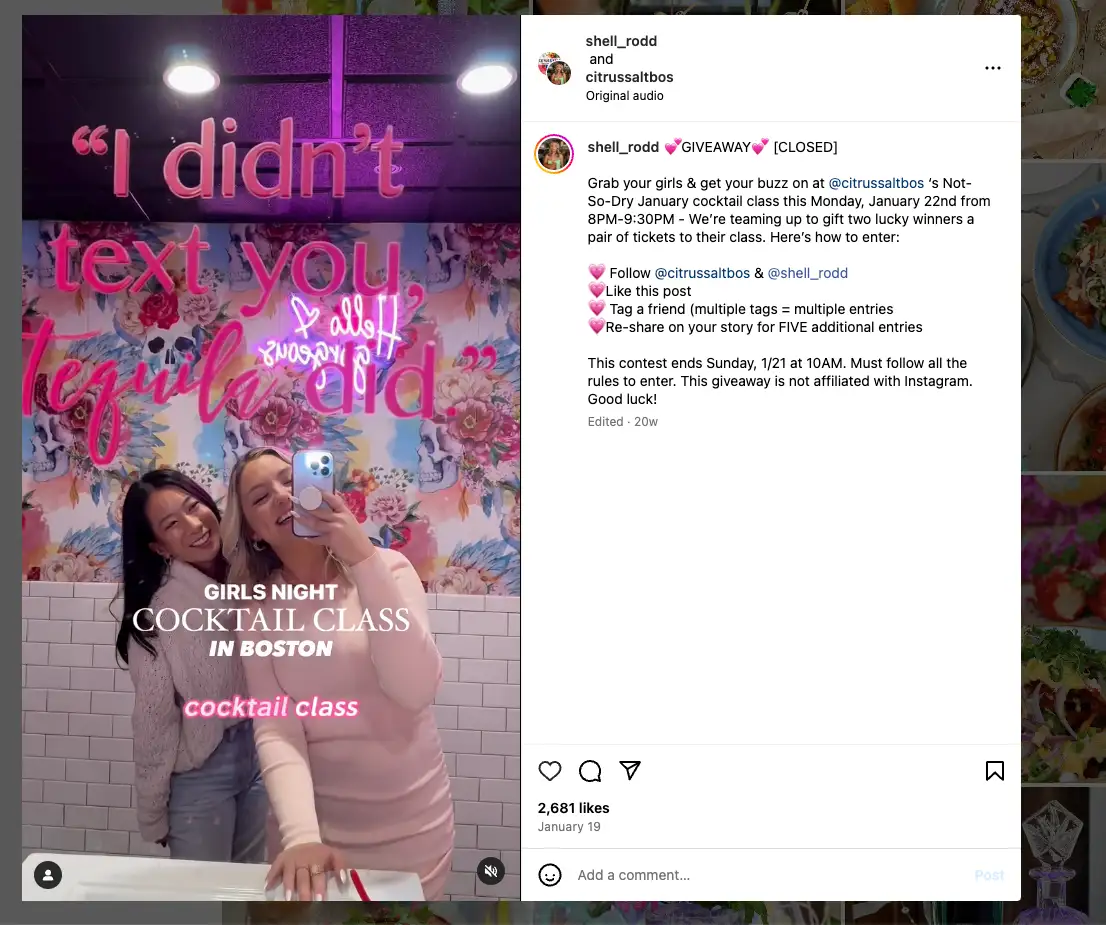
Generate Promo Codes
A great way to sell tickets to events is to offer promo codes. This creates urgency for guests to purchase tickets. For example, you can create the promo code 10OFF for a 10% discount on an upcoming class. Promote it through all of the channels listed so far like social media, email, and overlay alerts on your website. To create urgency, set a time limit for using the code (somewhere between 24-48 hours is good).
Leverage Word of Mouth
Last but not least, market your ticketed event the old fashioned way: by word of mouth. Ask your servers, bartenders, baristas, and management to communicate to your guests about what events or classes are coming up. Create a conversation about buying tickets as a holiday gift idea. Suggest it as a date night option. This is where being hospitable and conversational can help drive ticket sales.

PRODUCT
Restaurant Ticketing
Host events like charcuterie board workshops or wine tastings, sell tickets, and keep track of guests with an all-in-one system.
Step 3: Hold Your Event
Now it’s time to execute. Through the Marketing & Commerce platform, tickets are sent via email to customers who can either print them out or show them on their phones. From an operator perspective, it’s easy to export your guest list to keep track of people as they arrive for the event. Organization is key here.
After the event, be sure to ask your guests how it went and if they’d agree to provide any feedback. Facilitate this outreach using email marketing or SMS marketing. Once you’ve held your successful ticketed event, think about all other opportunities there are to offer your guests that build your brand and maintain customer loyalty.
Read more: How to Build a Successful Restaurant Loyalty Program
Curious how event ticketing works? Explore this step-by-step guide or watch this 4-minute video. Then, if you’re interested in getting set up to sell tickets to events or classes through your restaurant website, get in touch with us.

BentoBox Marketing & Commerce Platform
Deliver Smarter Hospitality
Want to stand out online, bring in more money, engage your diners, and streamline operations?
Recommended

Commerce
10 Most Popular Restaurant Merchandise Ideas
November 9, 2021
Here's how you can drive revenue, generate buzz and foster brand affinity with branded restaurant merchandise online.

Commerce
How to Use Ecommerce to Boost Your Restaurant's Sales
June 24, 2020
Why restaurants should offer gift cards, merchandise and more online.
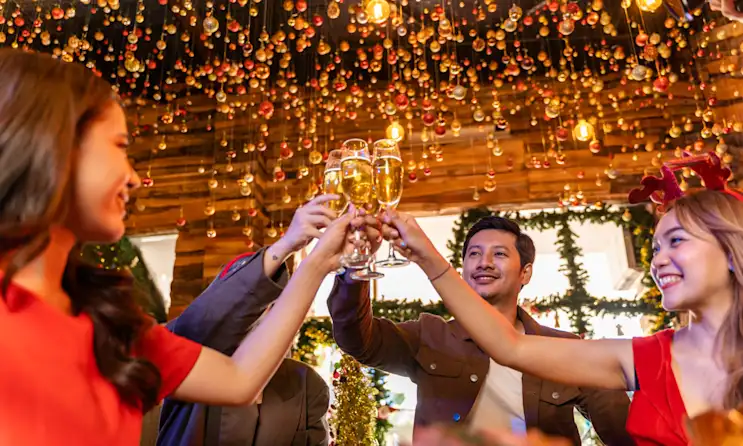
Holidays
6 Tips For Planning Holiday Ticketed Events
October 25, 2022
Spread a little holiday cheer and drive additional revenue with easy-to-manage ticketed events.
